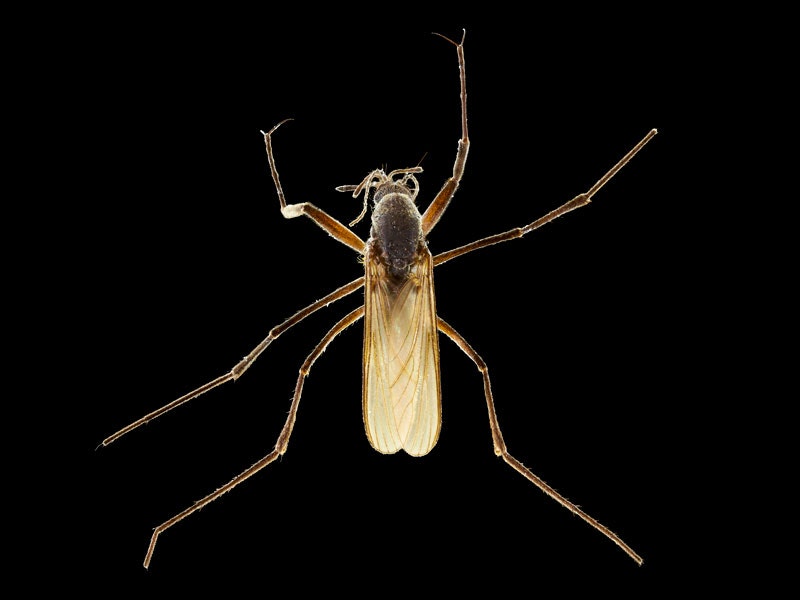
New Zealand Mosquito Census
We need your help tracking New Zealand’s native and introduced mosquito species so we can get a better understanding of which species live where and how they’re spreading. Simply catch it, freeze it, and send it!
Free museum entry for New Zealanders and people living in New Zealand
Open every day 10am-6pm
(except Christmas Day)
Free museum entry for New Zealanders and people living in New Zealand
Bug expert Julia Kasper explains why you might not be safe from mosquito bites in the winter, and the genius ways that mosquitoes survive the cold.
Normally mosquito season starts slowly in the spring, peaks in the summer, and tapers off in autumn. But in areas with mild winters, adult mosquitoes can be active all year round.
Most parts of New Zealand, particularly in the north, stay warm enough for mosquitoes to breed all year – for example our saltpool mosquito Opifex fuscus.
Saltpool Mosquito Opifex fuscus, 2019. Photo by linleye via iNaturalist NZ. CC BY-NC 4.0
Mosquitoes usually disappear when cold weather comes, but they don’t go away for good. They have several strategies for the population to surviving cold weather.
In locations where a warm spring follows a cold winter, some species of mosquitoes hibernate.
These adults begin their dormancy when winter weather arrives, and wait until the temperature is warm enough again.
This means some mosquitoes will come out of their hibernation on warm winter days, so you might see a few any time of year if it’s warm enough.
A few mosquitoes hatch in the autumn and hibernate as larvae, seeking the muddy bottoms of pools to protect themselves from freezing.
Many adult mosquito species die off when the weather turns cold. But they leave ‘winter eggs’, which survive freezing temperatures and lie dormant on the ground like seeds.
The eggs wait for warmth and spring rains so they can hatch – producing a new generation of mozzies.
Southern House Mosquito Culex quinquefasciatus ovipositing, 2006. Photo by Sean McCann via Flickr and iNaturalist NZ. CC BY-NC-SA 2.0
Since weather makes such a difference, mosquito activity can begin at different times each year, and some species before others.
Females generally suck blood after mating as they need protein to produce eggs. That’s when humans begin to notice them.
By the end of the summer, you may notice a decline in bites, since there are fewer mosquitoes around.
Striped Mosquito Aedes notoscriptus, 2017. Photo by Steve Kerr via iNaturalist NZ. CC BY 4.0

We need your help tracking New Zealand’s native and introduced mosquito species so we can get a better understanding of which species live where and how they’re spreading. Simply catch it, freeze it, and send it!